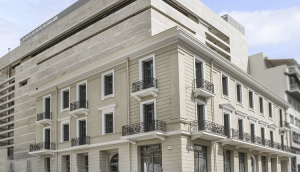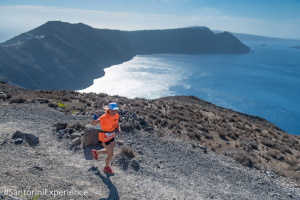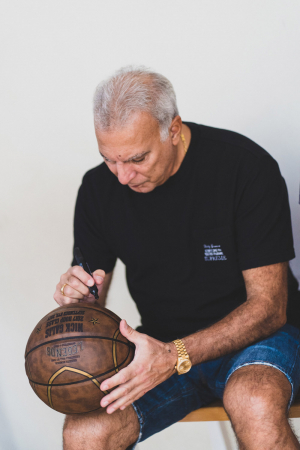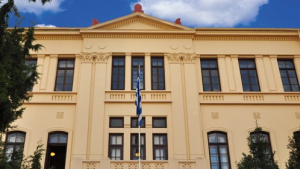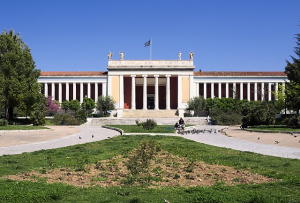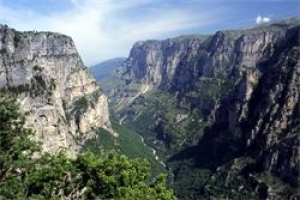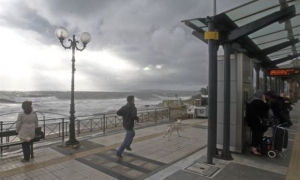BUSINESS CENTRE
XpatAthens
Several Schools In Attica Will Remain Closed Due To Heavy Snowfall
Please click here for a detailed list (Greek only) of the schools that will remain closed on January 8 due to the bad weather conditions in the Attica Region.
Source: ANA-MPA
The New Goulandris Art Museum In Athens Is Expected To Open On October 1, 2019
To read this article in full, please visit: Greece-Is
Image Credit: B&E Goulandris Foundation
Rio Olympic Champions At Santorini Experience 2019
Discounts and offers for the participants!
“Santorini Experience” is approaching, as, in October 4-6, the unique running and swimming races will take place for the 5th consecutive year in Santorini, the world-famous tourist destination of unparalleled beauty.
Santorini Experience will attract once again the global interest, where both professional and amateur athletes will participate in running and open water swimming races. The running races will take place on Saturday, October 5, 2019, and the open water swimming on Sunday, October 6, 2019 against the backdrop of the iconic Cycladic Island. In particular, on Saturday 05/10, the races of 15 km by Samsung and 10 km will start at 08:15 am, while the 5 km “Aristides Alafouzos” race will start at 11:00 am. All races have as a starting point the Desalination Plant located in Oia.
On Sunday 06/10, swimming will take place with the eruptive atmosphere of the volcano. Participants will swim the 1.5 miles (2.4 km) route from the volcano to the old port of Fira with the imposing view of the island in front of them at the Open Water Swimming by Vikos. The race will start at 10:00 am from the volcano. Swimming is held under the technical direction of federal coach and director, Nikos Gemelos, with the approval of the Hellenic Swimming Federation, following the FINA regulations and the safety provided by Boatmen Union Santorini, Lifeguard Patrol, Voluntary Lifeguards of Santorini, Atlantis Dive Center and Santorini Nautical Club.
This year’s event will feature the silver Olympic medalist in open water swimming Spyros Gianniotis, Japanese Olympic champion in Rio, Yasunari Hirai and the dynamic presence of the elite of the Greek National Open Water Swimming Team such as world champion Kelly Araouzou, European champion George Arniakos and Greek champions Dimitris Negris, Stellina Aplanti, Dimitris Manios, the twin Greek expatriates racing with the colors of the national team of Netherlands, George and Timos Skotadis, as well as Andreas Georgakopoulos, Irene Diakoumakou, Maria Filopoulou, Konstantinos Konstantineskou, Panagiotis Alogakos, Maria Kirykou, Triantafyllia Diakoumakou and Melina Trochalaki.
Check out the video with swimming tips from Spyros Gianniotis and Kelly Araouzou on the exciting swimming race HERE!
More information about this year’s detailed program can be found HERE!
Special offer & participation kit pick up at Alafouzos Sport
Swimming and running registrations continue now as well at the store of the official sponsor Alafouzos Sport in Fira.
A 25% special discount on registration costs per activity will apply to all participants for purchases over 15 euros at the sponsor’s store.
From Thursday 3/10 to Saturday 5/10, participants can receive their participation kits from Alafouzos Sport store (open hours: 09:00 – 21:00). Otherwise, runners and swimmers can receive their registration numbers one hour before the start of their race from the starting point of their races, on Saturday 5/10 and on Sunday 6/10 respectively. Meanwhile, participants may register in the event according to the final wave of registrations which lasts until the start of the event.
Register now for Santorini Experience!
Transportation offer to participants
DNA Travel, as the official transport partner of the event, in order to facilitate the transportation of all athletes, running participants to Oia and swimming participants to the old port of Fira, will implement the routes below: On Saturday, October 5, two itineraries will take place. The boarding point of the first itinerary will be the Church of Timios Stavros, in Perissa, at 05:30 am with one stop in Kamari (opposite the Soccer Field) at 05:50 am, next stop in Fira (opposite to the old Health Center) at 06:10 am and final destination the Desalination Plant in Oia. The second itinerary will start at 07:50 from Perissa (Church of Timios Stavros), with one stop in Kamari (opposite the Soccer Field) at 08:10 am, next stop in Fira (opposite to the old Health Center) at 08:30 am and the same final destination. When it comes to the participants return, another itinerary has been scheduled at 12:30 pm from the Desalination Plant in Oia to Fira, Kamari and Perissa. In addition, on Sunday, October 6, the participants of the open water swimming race will be transferred from the Church of Timios Stavros, Perissa at 07:50 am with one stop in Kamari (opposite the Soccer Field) at 08:10 am, to the starting point of the race in the Old Port of Fira. The transportation of swimmers from the Old Port of Fira to the volcano will start at 09:30 am. DNA Travel has arranged another itinerary at 14:00 pm from Fira (opposite to the old Health Center) to Athinios port (the main port of Thira).
2019 Santorini Experience offers
Take advantage of the offers available on ferry tickets, car rentals and accommodation for “Santorini Experience” by clicking HERE!
Attend Real Madrid Foundation Clinics in Santorini!
In the framework of “Santorini Experience”, and in cooperation with MGC Soccer Central, head coaches from the academies of Real Madrid will visit Santorini for the first time and specifically the facilities of the athletic center Playland, from October 3-6, 2019 and teach football to children aged between 6 and 16, using the coaching methodologies of Los Merengues! Register now. For more information click HERE!
Samsung is the event’s official technology partner for one more year.
Official sponsors of the event include Ford Motor Hellas, Athina Luxury Suites, Santo Maris Oia Luxury Suites & Spa, “Vikos” Natural Mineral Water, Blue Star Ferries and Alafouzos Sport.
For another year, Luanvi is the event’s official sports supplier.
Official supporters of the event are: Santorini Hoteliers Association, Meltemi Hotels & Resorts and Boatmen Union Santorini.
Avance Rent A Car is the official rental partner.
On is the event’s official shoe partner for the first time. National Geographic is the strategic partner of the event and 24MEDIA its premium media partner.
DNA Travel is the official transport partner. “Santorini Experience” is assisted by West East Suites, Lifeguard Patrol, Voluntary Lifeguards of Santorini, Atlantis Dive Center, Santorini Nautical Club, Santorini Yacht Cruises, Caldera Yachting and Erotokritos.
Until now, this year’s effort is supported with special offers and prices by the following hospitality sponsors: Santorini Hoteliers Association, Meltemi Hotels & Resorts, Athina Luxury Suites, Santo Maris Oia Luxury Suites & Spa, Canaves Oia, West East Suites, Andronis Arcadia, Vedema a Luxury Collection Resort, Mystique a Luxury Collection Hotel, Sienna Resort, Santo Houses, Desiterra Luxury Suites & Villas, 270 Oia’s View, Fanouris Condo, Monolithia, Casa Iphigenia, La Mer Suites & Spa, Antinea Suites & Spa, Beach Boutique Hotel, Bloom Travel, Loizos Stylish Residencies, Iokasti Villa, Olive Cave Houses, Panorama Studios & Suites, Esperas Santorini, Mesana Stone House and White Pearl Villas, while participation continues.
VitaNTravel is the event’s official travel agent. “Santorini Experience” has joined the Greek actions of the #BeactiveHellas 2019 program of the European Commission and is under the auspices of the General Secretariat of Sports. “Santorini Experience” is a co-organization of Municipality of Santorini, Municipal Sports Cultural Environmental Organization of Santorini (DAPPOS) and Active Media Group.
The event is held under the auspices of the Greek National Tourism Organization with the approval of the Hellenic Swimming Federation.
More info www.santorini-experience.com
Official Hashtag: #SantoriniExperience
Photo credit: Elias Lefas
Navarino Challenge 2019: Love Auction
The award-winning sports tourism event Navarino Challenge returns for a good cause, organizing an auction of love to support three nonprofit organizations. Favorite items of beloved and renowned athletes and ambassadors of Navarino Challenge will be available through an online auction from December 11th to December 20th, 2019.
You can take part in the auction and acquire the items by clicking HERE!
In the auction you will find, among other things, the official jersey of Greece at the 1987 European Championship and a hall-of-fame ball signed by basketball legend Nick Galis, the signed jersey of NBA MVP Giannis Antetokounmpo from his first appearance in the NBA All Star Game and his first appearance with the Greek Men’s National Team, his signed front page cover at the Sports Illustrated magazine, item of the gold Olympic medalist and world champion in still rings Eleftherios Petrounias, as well as the jersey of Greece from the 1996 Olympic Games with the signature of Panagiotis Giannakis. In the auction you will also find signed memorabilia from athletes such as: Grigoris Polychronidis (gold Paralympic athlete and world champion in boccia), Alexandros Nikolaidis (two times silver Olympic medalist in taekwondo), Spyros Gianniotis (silver Olympic medalist and world champion in open water swimming), Periklis Iakovakis (Olympic and world champion in 400m. with hurdles), Kelly Araouzou (world champion in open water swimming), Eleni Chatziliadou (world champion in karate), Vasiliki Millousi (world champion in balance beam), Joe Arlauckas (legend of Real Madrid), Dimitris Diamantidis (Greek basketball legend), Kostas Papanikolaou (international basketball player with NBA appearances), Kosta Koufos (international basketball player with NBA appearances), David Rivers (basketball legend of Olympiacos), Dean Karnazes (Greek-American ultramarathon), Michalis Triantafyllidis (participations record holder of the Greek national volleyball team), Christos Gatsis (boxing champion), Alexandros Nikolaidis (kickboxing champion), Dimitris Moros (personal trainer), Giorgos Masouras (international footballer of Olympiacos), Nikos Karelis (international footballer of Brentford). In the auction you will also find the exceptional artwork (6x2m.) of the artist Nathan Makris, that depicts top athletes, Nick Galis, Spiros Gianniotis, Alexandros Nikolaidis, Grigoris Polychronidis, Periklis Iakovakis and Dean Karnazes.
All items are donated by the athletes or the event’s friends themselves.
a) the Institute of Preventive Medicine, Environmental and Occupational Health, Prolepsis with a program on Food Aid 2 and Promotion of Healthy Nutrition, DIATROFI, and through Captain Vasilis and Carmen Konstantakopoulos Foundation
b) WWF Greece
c) Karkinaki. Navarino Challenge is co-organized by Costa Navarino , The Westin Resort Costa Navarino and Active Media Group.
Hashtags: #navarinochallenge #costanavarino #sportsunitepeople #eatwell #runwell #livewell #sportauctions
Aristotle University Of Thessaloniki Offers Medical Degree In English
Recently, the Medical School of Aristotle University of Thessaloniki (AUTH) opened for the first time its doors to English-speaking students from all over the world by launching its first 6-year Undergraduate Program in English.
Being one of the most prominent Schools in Greece, AUTH’s School of Medicine is committed not only to developing specialized professionals but also to cultivating responsible individuals. Within a framework of research and innovation, the Program provides a world-class medical education that triggers a passion for learning, a desire to serve, and a steadfast commitment to improving the health and well-being of society. The main goal of the School of Medicine is to educate medical students, as well as to provide health professionals with the highest scientific standards. An additional aim is to perform high-quality research frequently in collaboration with other Greek and international research centers. The students of this program will participate in various research programs of the Laboratories and Medical Departments and will be shaped by the ethical values that compose the world of Medicine.
In regards to the Program’s curriculum, clinical skills are shaped from the first semester and clinical rotations start from the 4th year. In order to obtain the Medical Degree students are required to complete 83 modules (76 courses and 7 courses – clinical traineeships).
To read this article in full, please visit: greeknewsagenda.gr
The Story Of Modern Athens Through Its Architecture
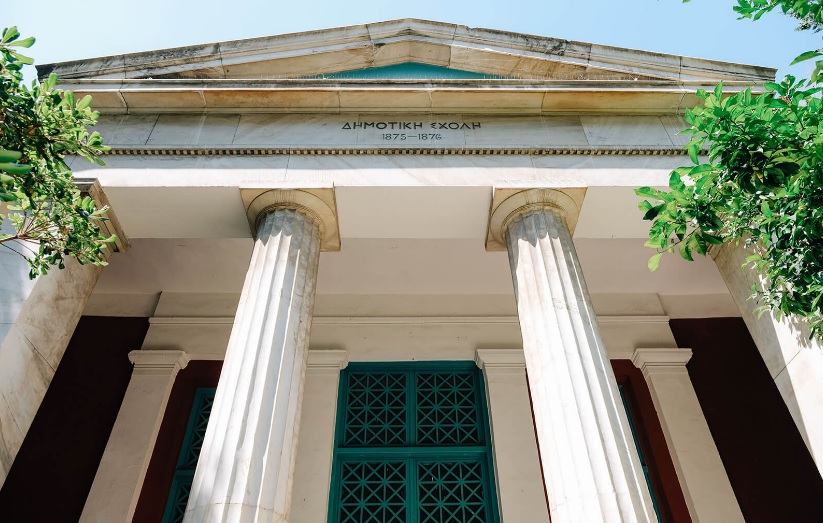
Credit: Georgios Makkas
Athens is established as the capital of Greece and the modern metropolis takes shape. Drawing inspiration from ancient Greece, architects introduce neoclassical elements. Impressive public buildings dominate a landscape of low-rise, stand-alone residences with gardens.
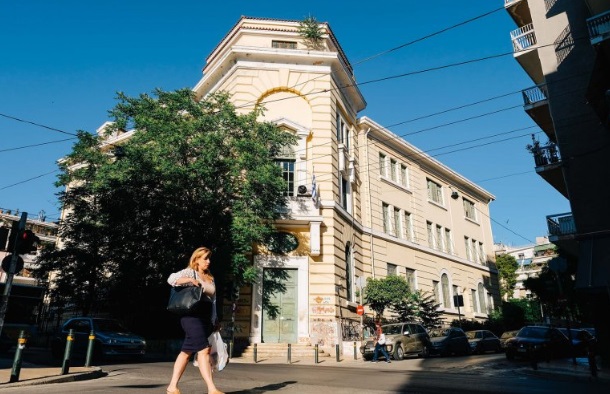
Credit: Georgios Makkas
The emphasis shifts from public buildings to private residences, as the city’s elite display their wealth in luxurious mansions with eclectic flourishes.
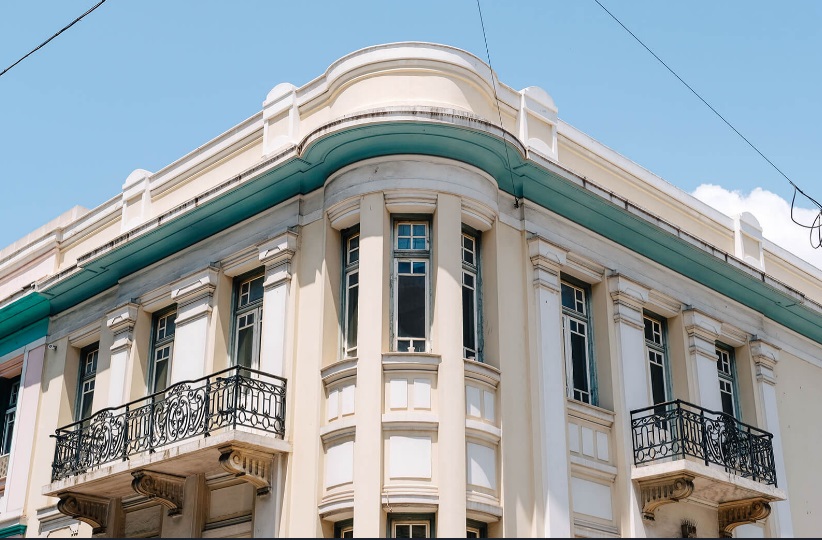
Credit: Georgios Makkas
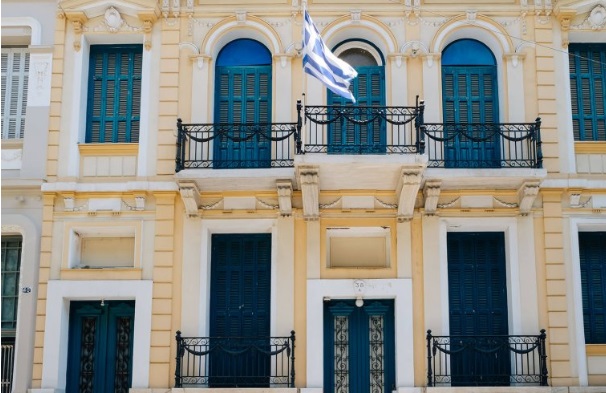
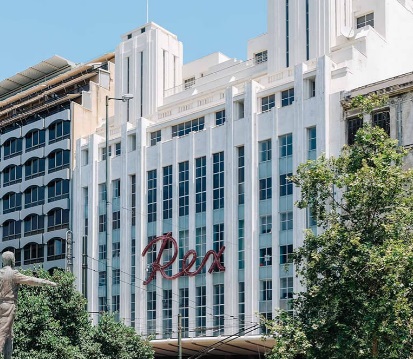
To read this article in full, please visit: thisisathens.org
New Look For Central Athens With Museum Makeover
The revamped museum will have an underground car park, dining areas, a new garden, and entrance, and will harness natural light to highlight exhibits and spaces. The museum’s priority is to showcase the Greek civilization through exhibits spanning the centuries.
However, it will not be limited only to ancient Greek art, as it will also seek to open new paths into contemporary art. The plan stipulates that the main exhibition space will increase to 11,000 square meters from 7,800, while spaces intended for temporary exhibitions will be expanded to 1,430 sq.m. from 400 sq.m.
To read this article in full, please visit: ekathimerini.com
The Silence of Being
When: August 21-24, 2025
Where: Vikos Gorge, Epirus
Email: intheopenioannapappa@gmail.com
Contact: WhatsApp +306907910519
Instagram: ioannapappa___
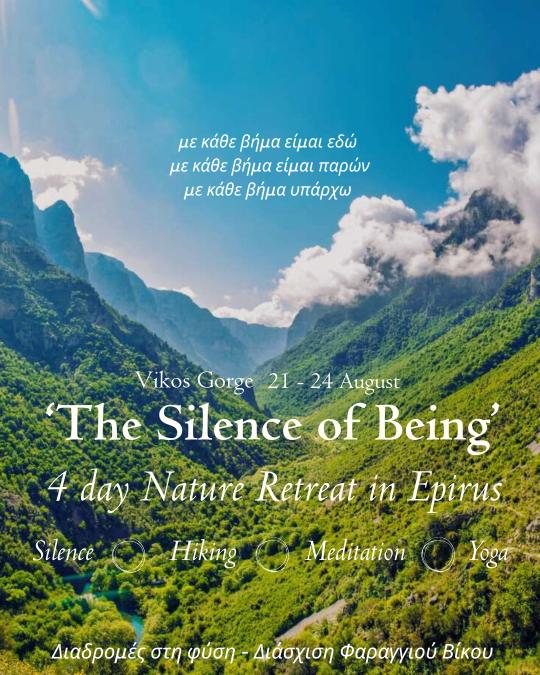
Hiking Ancient Trails In The Vikos Gorge
In the mountains of Zagoria villages you can hike through the deepest gorge in the world in Vikos-Aoos National Park, wander the cobbled streets of tiny rural communities with their preserved old mansions in the unique Zagorian style. Follow ancient tracks you can discover elegant stone bridges and refresh the clear rivers of Zagoria.
The Vikos Gorge lies in the North Pindus Mountains in the historic area of Epirus, 30 kilometers north of Ioannina and 38 kilometers from the Albanian border. The area, called the Zagori, has 44 villages called the Zagorohoria. The 12-kilometer gorge itself can be hiked in two or three parts: Monodendri north to Vikos; Vikos to Papingo, and Monodendri south to Kipi and its lovely arched stone bridges.
Part of the pleasure of hiking the gorge comes from the long journey to get there. A car trip from Athens to Ioannina takes 7 hours with an advised overnight in Ioannina to enjoy this lakeside town with its Ottoman-flavored bazaar and inexpensive eateries rimming the lake. After Ioannina, it's only 16 kilometers to the first villages of the Zagori. The mountain road is steep, narrow, and winding. Local drivers tear around hairpin curves leaving little space for oncoming traffic.
By bus from Athens, the journey requires calculation to connect with the smaller buses to the Zagori. Long-distance (KTEL) buses leave Athens Bus Terminal A (Kifissou Street) nearly every hour starting at 6:00. The trip is approximately 7 hours with a spectacular crossing of the new bridge at Rio. Buses can be packed with Albanians making bus connections in Ioannina for the Albanian border so arrive at the station early if you need to make a connecting bus to the Zagori.
Two bus services leave Ioannina for the Zagori. One goes to Monodendri and villages near the south end of the gorge, leaving Ioannina at 6:15 and 16:15. The second goes to Mikro Papingo and Megalo Papingo and the villages near the north end of the gorge, Monday, Wednesday and Friday at 5:15 and 14:30.
The village of Monodendri, on the rim of the gorge near the south end, is a good spot for those who want to hike the entire gorge as well as view the famous stone arched bridges over the river below the gorge. Nearby Vitsa is also good for hiking the gorge, although it's a distance to reach the entrance to the gorge.
The villages of Mikro Papingo and Megalo Papingo, at the north end of the gorge, are better suited for hikers who want to hike the gorge as well as east into the Gamilla range.
The challenge of hiking the Vikos Gorge is how to return to your point of origin. The long, winding gorge and its deep side ravines separate villages from each other. It can take hours to drive to a village that is visible across the gorge. Local buses make twice a day flying stops in the village squares with one service connecting the villages near Papingo and the other connecting the villages near Monodendri.
Source: Hiking in Greece
Stormy Weather & Low Temperatures On Election Day
The national meteorological service EMY has announced that the weather will take a turn for the worse over the weekend, when the critical general elections are scheduled.
According to EMY the west, east and southern party of the country will experience rainfall and occasional storms, while the rest of the country will see overcast skies with sporadic showers. Mountainous regions may see localized snowfall.
The westerly winds will be strong, measuring between 20 and 50 Km/h in most parts of the country. In the eastern parts of the country, particularly in the Aegean, the south southwesterly winds may exceed 70 Km/h.
To read more, please visit tovima.gr/en



